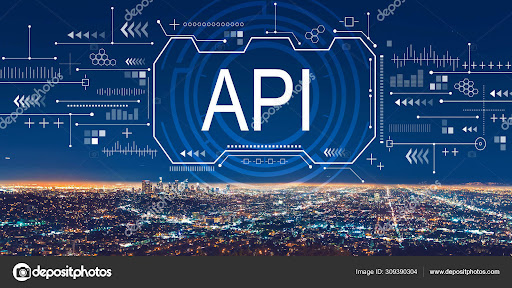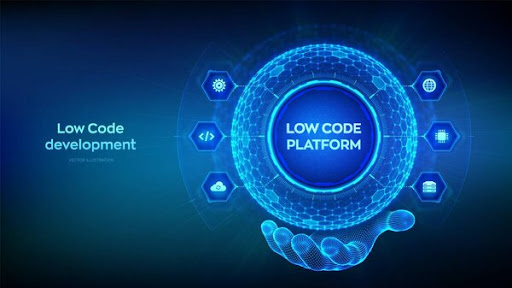Artificial Intelligence has been one of the biggest innovations in the tech industry for the past decades. The attempt to integrate intelligent agents into people’s daily lives has been evident as people try ways to make everything more convenient. Areas that require human intelligence, such as speech recognition and decision making, are now available via non-human technologies.
Machines and software are programmed to make lives easier and automate processes for businesses and organisations. The influence of AI branches out towards the business of software development.
Now, the questions that stand in the development field: What does AI have to do with software development? Aren’t developers responsible for creating programs, applications, software or digital solutions that are “smart”?
No code and Artificial Intelligence
No code development is a type of development that relies on a visual interface. Instead of the typical endless coding sessions, developers can now create digital products that don’t involve any line of code. No code development is one of the fastest-growing segments in software development. The addition and integration of Artificial Intelligence make no-code a wiser investment for businesses.
Artificial Intelligence, on the other hand, is the ability of non-human innovations to have human capabilities. On top of speech recognition and decision making, AI also touches on other parts of human abilities.
Some AI products can manage trillions of data in split seconds and perform deep insight analytics within minutes. AI’s deep cognitive abilities allow machines to understand, learn and communicate various languages rapidly. These are just some examples of the functions and features of AI.
The marriage of AI and no-code development is a significant advantage for non-technical developers. No code AI can have many abilities that take humans years and many experiences to sharpen. For business owners and people running large organisations, having no-code AI tools can cut a lot of effort and produce twice as many tangible results. Nevertheless, no-code AI tools are still investments that require proper deliberation.
-
No-code development is increasing
No-code development is gradually growing by the numbers. According to a global survey, about 71% of respondents answered that there is a strong impression and belief that no-code usage will continue to increase (Vailshery, 2022). Along with low-code tools and platforms, software development is now more accessible to the ordinary user penned as citizen developers.
There are already big companies that offer no-code platforms to users. These platforms all have their competitive edge, ensuring that each big player in the market addresses a business operation concern that only no-code AI tools can handle.
-
AI is slowly gaining traction
In particular, the most prominent application of AI in no-code platforms is via Intelligent Process Automation (IPA). “In 2021, it is estimated that 10.9 billion U.S. dollars will be spent on intelligent process automation (IPA)” (Statista, 2022). No-code IPA software has the primary function of ensuring that automated business processes run smoothly. Automated workflows become the solution to process bottlenecks with the use of AI.
Other subsets of AI like Robotic Process Automation (IPA) and AI business operations are gradually gaining more traction. Even if these segments are not as fat-growing as IPA, it’s expected to grow traction by 2023 among enterprises and industries. Expect these segments’ numbers and total market value to increase through the next decade.
Benefits of no-code AI

There is a strategic aspect to investing in no-code AI platforms. It’s more than just a fad that businesses are trying to get into. The integration of AI in people’s lives and business operations and processes is becoming more apparent daily. Here are some of the benefits of no-code AI:
Increases opportunities for the common person
A certain invisible curtain divides professional development and low-code/no-code software development. While the latter allows more possibilities to the ordinary person who didn’t study programming languages, it’s not the same with professional development.
The introduction of no-code AI incentivises people to explore the realm of software development. Suppose you’re a beginner who wants to explore how it is to automate business processes or design business process logic for deployment. In that case, no code AI platforms are available to aid that avenue and time for exploration.
Decreases costs and expenses in running businesses
No code AI tools are mostly part of bigger platforms that offer more than AI capabilities to businesses. Some platforms provide services for no-code marketing or no-code database management.
These platforms primarily work on a subscription basis depending on the organisation’s size and the number of active users per account. All platforms have different logic in formulating rates. Nevertheless, Machine Learning models are already integrated into these platforms at costs that can start from something as low as 5 USD per month to hundreds of dollars monthly.
Higher adaption to the latest technology
The key to progress and development in all types of industries is innovation. The high drive and preference for innovation make people create things meant to make human lives more manageable.
AI is part of an industry that rapidly grows and changes. Every day there is a new project that helps mitigate specific issues. Small ventures are swimming in the sea of tech giants to provide something better and unique. The introduction of no-code AI is a gateway to the latest technologies in no-code and low-code development.
Caters to many repetitive and manual tasks
The human workforce is necessary to keep business operations running smoothly. The pitfall happens when people repeatedly do the same thing without opportunities to solve more complex problems in the business. Brilliant employees become a waste in the industry.
No code AI software solves that recurring issue in human workforce woes. Moreover, keeping people for tasks and processes too routinary in the long run becomes more expensive.

Examples of no-code AI tools and platforms
Many no-code or low-code development platforms are already integrated with AI capabilities. Here are some of these platforms that all users, especially beginners, can try right now:
Akkio
Akkio is one of the leading platforms for no-code AI development focused on data. Ths no-code platform uses high-performance Machine Learning to provide automated data-driven functions for businesses. The platform’s function is evident in its offer to “Grow your business with data-driven decisions. Go from data to AI in 10 minutes — no code or data science skills required.”
Akkio has provided no code AI products to many companies in various industries. The prowess and impact of Akkio are relatively high, considering the platform was only launched in 2019. Akkio aims to provide affordable package plans that help small businesses scale wisely using AI and Machine Learning. Here are some examples of the functions and features of Akkio:
Revenue Operations
One of the biggest departments for all businesses, no matter the size, is revenue. Companies should have full knowledge and understanding of Akkio’s Revenue Operations to direct the flow of business activities. Akkio’s Revenue Operations product has Machine Learning. Business owners can now have full-scale forecasts and predictions of revenues which helps shape the business’s budget.
IT Operations
While there are preset and standard products such as the Revenue Operations, Akkio’s IT Operations deploy models of Machine Learning for the business. Many companies may want to create and deploy model solutions tailored to the business.
Integrations
Akkio employs the function of external applications through Akkio’s Integrations. It’s common for users to have experience in other platforms before trying Akkio. As such, Akkio provides connections to many apps to help users create systems with an existing product they already use.
Prevision
Prevision is an AI management platform that provides functions from creating to deploying data models. Prevision was founded in September 2016 and has its Executive Team: Tuncay Isik, Florian Laroumagne, Nicolas Gaude, and Pierre Nowak, heading the company.
Prevision is a simple interface platform. Currently, the platform is available in Google Cloud Marketplace with a pay-as-you-go rate system. As a data model creation platform, Prevision envisions to aid many industries that need immediate functions of AI, such as Healthcare and Finance. Here are some examples of functions and features from the platform:
Experiment
For developers trying to create systems, experimentation becomes key in producing that one all-encompassing business model. With experimentation comes a series of trials and tests that may hinder or take time from performing business operations. Prevision’s Experiment manages Machine Learning experiment models and optimises these models using AutoML.
Automate
Owners should automate many business functions and processes to save time and resources. Prevision’s Automate connects all data sources to the platform so developers can create systems using data-driven operations. From Pipeline Creation to auto-scheduling, Prevision’s Automate automates business workflows.
Deployment
The deployment stage of any project is like the actual production and use of the created system model. Many businesses fail in deployment because of many factors such as taking too much time to make a system, business changes taking place, or businesses simply losing interest. Prevision’s Deployment is the final test that ensures everything in the project works.
Peltarion
Peltarion is another AI software company that provides AI functions for data sets. Peltarion offers these AI functions in the form of Visual Programming for Deep Learning. The platform relies on visual interface creation rather than the common traditional coding to create AI programs and software.
Peltarion is the creation of Luka Crnkovic-Friis and Måns Erlandson, who hail from the Royal Technical Institute in Stockholm. The beginnings and foundation of Peltarion don’t lack experience, as its founders were the first AI solution providers for big industries.
Names such as NASA, Tesla, and Dell. Peltarion was a product of years of experience and innovation and is still a growing team with equally experienced professionals looking to develop no-code AI solutions.
Workflow
Peltarion’s Workflow feature allows Deep Learning for end-to-end development. The Workflow provides integrations and functions for Data exploration, Model development, Model Evaluation, and Model serving. For businesses looking to create data models, apply functions and automate processes, Peltarion offers Workflow to aid you to optimise business operations.
Machine Learning Ops
Any project has a lot of aspects and functions. Unsurprisingly, projects balloon in size and turn into a complex system that stitches business operations into one working model. Machine Learning Ops allows users to manage all projects at once. From lifecycle development, deployment and upgrade.
Infrastructure
Peltarion also offers users flexibility in cloud computing and cloud storage. Businesses now don’t need to invest in large, expensive hardware and maintenance IT teams to keep these things together. Peltarion’s Infrastructure is the solution for maintaining all these projects, files, and heavy systems working correctly.
Apteo
The surge in online shopping and commerce increased rapidly due to the persistence of e-commerce platforms. Many big names in the industry specialising in online retail commerce platforms, such as Shopify also need AI to work. Apteo is a no-code platform that infuses AI and online retail commerce.
These websites that sell products and services gain a lot of data daily. Retail websites don’t have a shortage of numbers to back up analysis and drive big retail changes to online shopping platforms. Now, who is supposed to handle everything on these sites, from marketing to sales to external integrations? The answer is Apteo.
Automatic Segmentation

Each customer and site visitor is unique. However, it doesn’t mean that the behaviour and usage of each customer don’t create a pattern to group likely market segments. Apteo’s AI analyses customers so that developers “know which people are more likely going to buy what items.” Developers can modify and change the segment’s rules to provide classifications and niches in the e-commerce platform.
Predictive Analytics
In all e-commerce sites, the goal is always to lead customers in a sale. After all, these platforms are, in a traditional sense, stores that offer goods and services. The advantage that Apteo brings comes from analytics, which provides users and developers insights into the customer.
Personalized Campaigns
After getting all the data and analysing it into one big case study of the customer segment, the actual strategy comes into play. E-commerce sites are always powered with ads and campaigns to bring more attention to certain products. From personalised email marketing to cross-sales recommendation, Apteo brings in no-code AI to help each business gain a sale from the right customer.
No code AI tools and platform: Are these tools worth it?

There is no right or wrong way of making businesses more efficient. Each company is an entity of its own, with set strategies and goals directing the people running it. The introduction of no-code AI is simply an opportunity for people in these entities to innovate and simplify a lot of the work that comes from running operations. In the end, it’s a matter of investing in tools that help make time and resources more productive and beneficial to the growth of the business.





